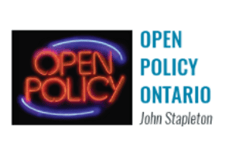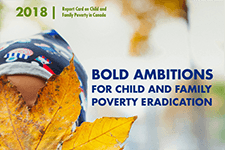Discover financial empowerment resources
Discover financial empowerment resources
Working poverty is pervasive, racialized, and until the pandemic, was increasing in Toronto and across Canada. Until the pandemic, this increase was counterintuitive, during 2006 to 2016, as most of this ten-year period had been characterized by one of the most prolonged economic recoveries in...

This is the 2023 report on the progress of Opportunity for All – Canada’s First Poverty Reduction Strategy (PRS). While COVID-19 still threatens communities in Canada and around the world, the public health measures have largely been lifted. Temporary economic measures have also ended. At the...

The 2018 national report card “Bold Ambitions for Child Poverty Eradication in Canada,” provides a current snapshot of child and family poverty and demonstrates the need for a costed implementation plan to eradicate child poverty in this generation. In advance of the 30th year of the...

This is a report on child poverty in British Columbia and connections to the working poor, employment insecurity, living on low incomes, and gives policy recommendations to respond to this...
In 2015, according to the U.S. Census Bureau, about 43.1 million people, or 13.5 percent of the nation’s population, lived below the official poverty level. Although the poor were primarily children and adults who had not participated in the labor force during the year, 8.6 million individuals...
Canadians with disabilities have consistently experienced low levels of employment, as well as barriers in the educational, economic and social spheres. They face massive obstacles in participating in the labour market, especially those with severe disabilities or low educational attainment....
This paper introduces two new concepts to the debate on job quality: the low-wage gap and low-wage intensity. These two measures provide information on the depth and severity of low wages. Using Labour Force Survey microdata, we discuss trends in these two measures, along with trends in the...
This short statement proposes an agenda for reconstructing much of our social policy over the next decade. Some of these initiatives build on ongoing reforms − most notably those regarding children and parents. The proposals for adults are more radical and far-reaching, calling for deconstruction...
